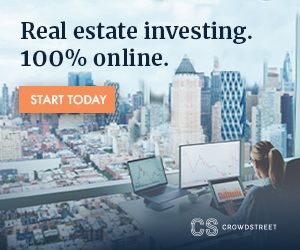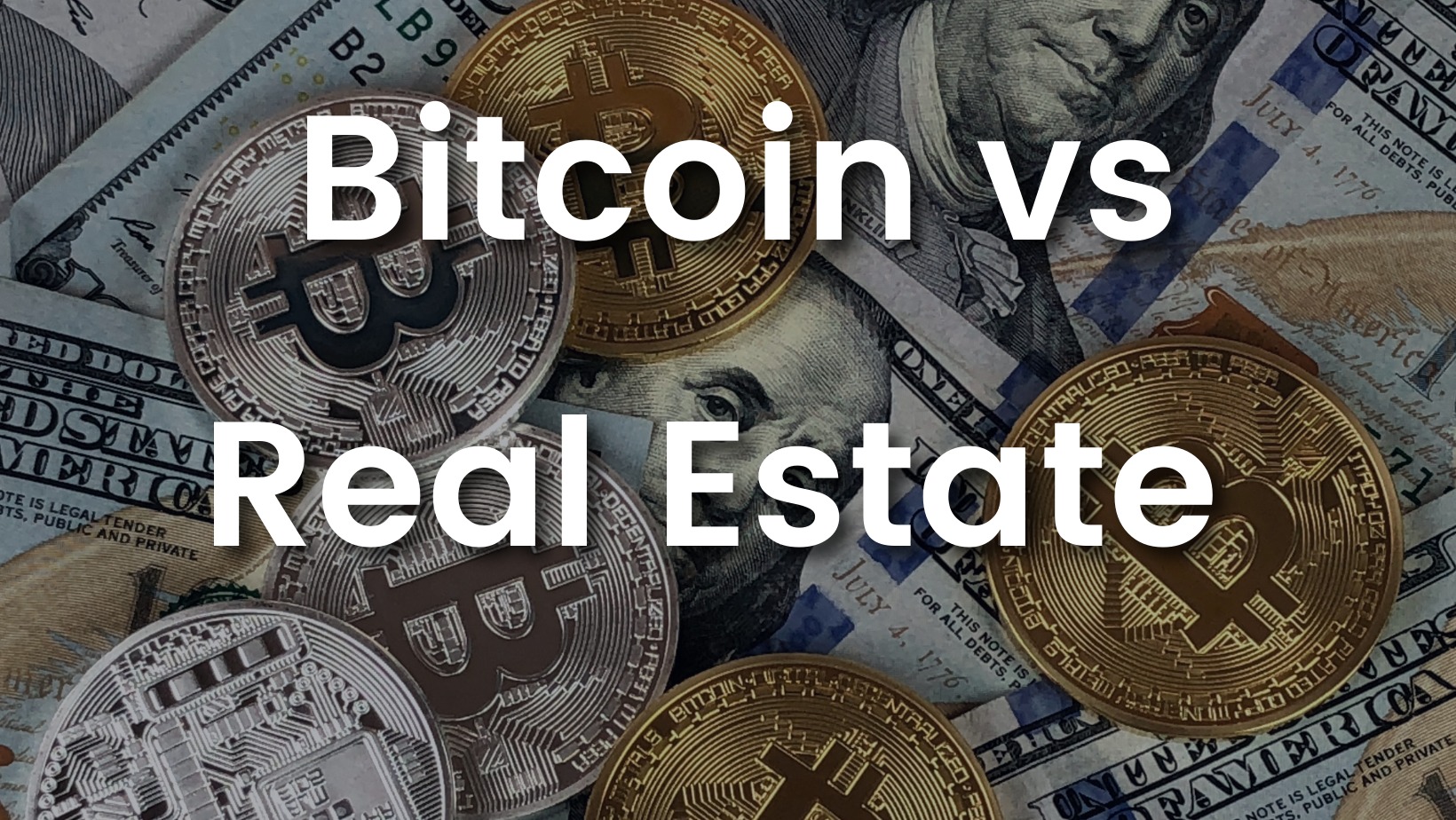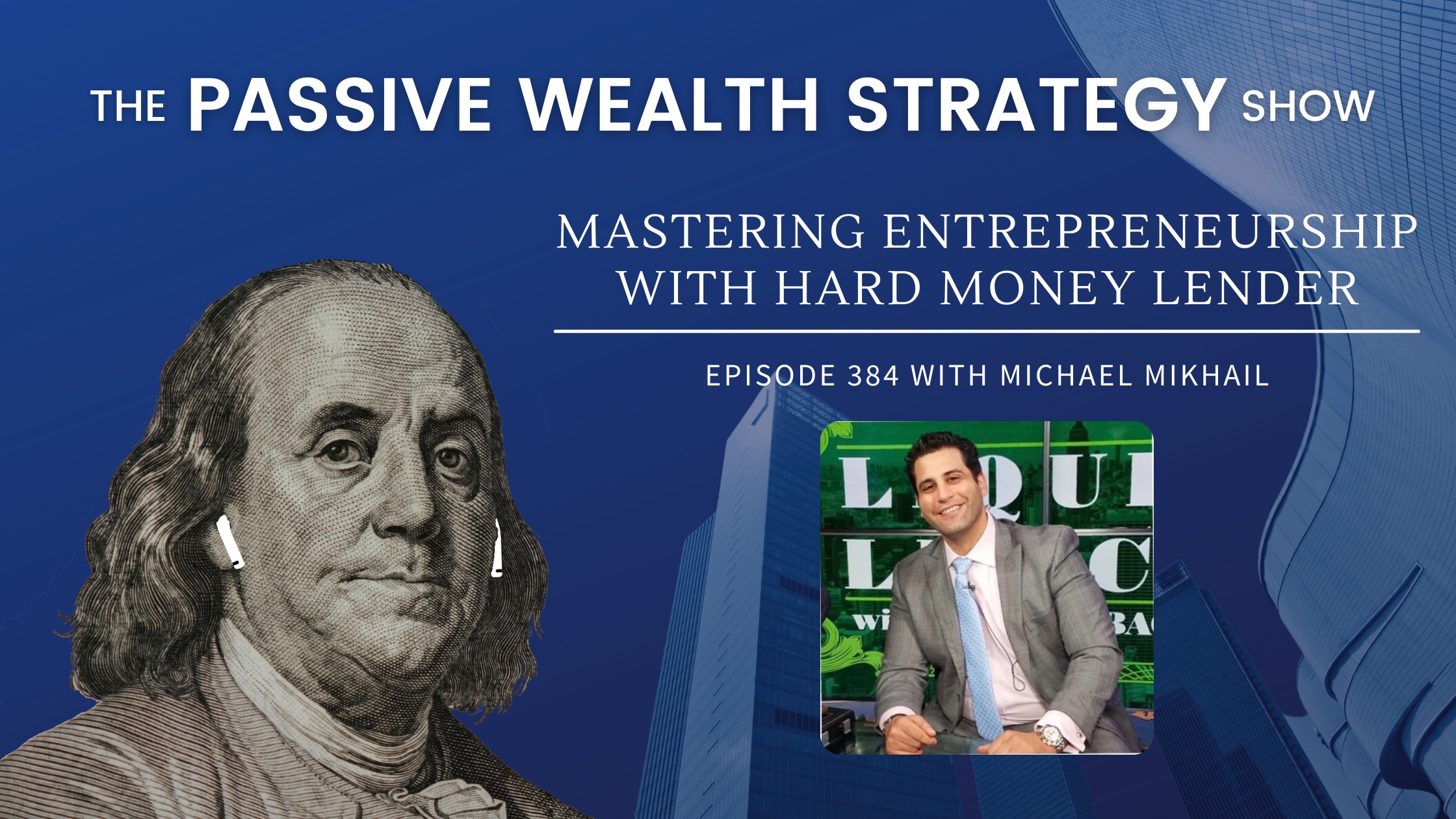
Mastering Entrepreneurship with Hard Money Lender Michael Mikhail
Michael. Thank you for joining us today.
Thank you. I appreciate it.
It’s been a great conversation so far. I’m really excited to continue. You have a lot of great stories and backgrounds. I love your energy for our listeners out there who don’t know about you, your business, and your background. Could you give us an intro?
Tell us about what you do and where you come from.
Sure. I’m the founder and CEO of Strata and Equities. We’re a nationwide direct private money lender. I will live in 43 next month out of 44 states. And we specialize in investing in commercial financing.
Awesome. great. I would really like to dive into your entrepreneurial background, history, and knowledge that drove you to start this business.
And it has helped propel your success as a private money lender. So let’s dive into that and dig into your, I guess, start as an entrepreneur. If there’s somewhere else you want to kick it off, we can start there instead of going to court. All right, absolutely. So tell us about your start as an entrepreneur.
What’s funny is if I look at the backstories of a lot of successful people, and if you look at them, there are always a lot of common denominators that most people choose. They don’t really see. Most of them are very bad students. If you really look into that, they were very bad students.
Do you know what my name is if I’m a super successful comics artist like Jay Z? We are bad students. I suffer from ADHD. I couldn’t sit in class. I couldn’t sit still, which helped me in my career tremendously, but I’ve always been very creative in my thinking. Not really just how to make money, but just things that I was passionate about.
And I tell people it’s not about the money. You can’t say I want what Elon Musk did and go out and say, “I want to make all this money.” It was what he was passionate about, what he did, and what he had a knack for. If you don’t truly love something, you can’t do it 18 hours a day, seven days a week. And I tell people, if you want to be successful, that’s what it’s going to take for years and years, 18 hours a day, seven days a week.
If you’re not willing to do it, then just don’t do it. One of the first things I did when I went to high school in the nineties, which you can’t do these days, was sharpened knives for students and teachers. They bring me knives. My woodshop teacher, my math teacher, and people’s parents would literally bring knives.
You can do that these days. You’ll get arrested. Bringing knives and shovels and chisels and axes to school. And I was 15 years old. I would take all these knives home. Man, I’ve always loved sharpening knives. I’m very good at it. So I was sharpening knives for like 50 cents apiece when I was like 14 or 15 years old. And that was one of the things that I did. My first actual business was in Jacksonville, Florida.
It was a car wash, the hand carwash attached to a gym. I really loved the car wash industry at that time. One day, I think I’ll get back into it when I go back down to Florida. But I’ve always been very passionate and, even though I was always hungry to be successful, it was never like, “Oh, I want to make all this money.”
I just love things. I dive right into it and I do it for like 18 hours a day, seven days a week. I don’t stop, and I’ll tell you why. When we get to that, what was I calling the squirrel story? I’ll get to that story in a minute.
Okay. Okay, I want to make sure we stick a pin in that. So you were telling me before we were recording that one of your top traits in real estate and entrepreneurship is aggression.
That’s what makes you successful, because being aggressive in business, particularly in real estate, is a people-and network-driven business. Your network is your net worth. We hear that left and right. And that’s certainly been the case in my experience. How do you balance being aggressive with also maintaining relationships with investors and not turning that aggression into an interpersonal negative impact, if that makes sense?
It took a long time.
Again, I have my beliefs and my beliefs are, if you’re going to be in big business if you’re a little lamb, they’re going to rip you apart. Everyone, no matter what business you’re in, wants to take advantage of you. Everybody wants to throw you into long-term contracts so that they can put them together as a rule of mine.
I never signed long-term contracts. I don’t care who it is. even with my cable company. I don’t do long-term contracts, which is the fastest way to get yourself into the gates of sued. One of the fastest ways, man. It took a long time when I was much younger. I was, I’m still that aggressive, but I also deal with, how do I say, people who are also on that level, who appreciate it, who understand that it’s business. I’ve surpassed the point where I’m dealing with emotional people, people that are very sensitive. Those are the people that are on the lower end. I haven’t dealt with them for three or four years in any capacity.
So yeah, but I just don’t believe you can really become successful in business if you’re not a savage. Obviously, in the right way, you’re not going around beating people up, but in business, you have to stand your ground. When I was very young, a billionaire told me if I wanted to be successful, I had to be selfish myself.
And I’ve seen people that are not successful. One of the reasons they aren’t is that they aren’t self-centered. People, family, friends, this and that, want attention. People will even ask you for money. Grant Cardone, for example. I’m not a fan of his, but he goes, when I was coming up if my mom asked me for a hundred thousand dollars, I had it, I wouldn’t give it to her.
Now that Adam’s a billionaire and I’m the same thing. My, when I was coming up. I couldn’t give somebody money and no matter who you are, no matter what the reason was, it was me and I could become successful. And I had to do what I had to do, and now I’m letting you get my mom more than she ever asked for.
But when I didn’t have the money and every dollar counted, nobody got a dollar from me. If you have to be selfish for yourself, people will constantly want your time, your energy, your money, and your focus. You’re this, you’re that. And if you’re just handing it out to them, they’re just
Absolutely. I’ve spoken with many successful investors and heard this lesson left and right.
But most of the successful people out there will say they say no far more often than that. Then they say yes. I think Bill Gates is big on that, as is Warren Buffet. Now I really want to dig into your experience of hitting rock bottom before starting this business as well. And you’re telling it that’s about the experience that we’ll talk about, climbing out of the hole and getting to where you are now.
And that’s where the squirrel story comes into place.
So, after the crash of 2008 and nine, we all have growing pains. I was in my late twenties. We all have to go through our own battles in life, not always financial, but sometimes mental and emotional. So I had a lot of growing pains and a lot of mental or emotional things that I had to get through, which is all part of the journey.
You have to love the journey. And I always promote that. I always say I heard a saying yesterday from a guy who was watching an interview, some of the top 10 richest, and he said, I had all the misfortunes in my life to aim me for success. And I love that quote: people who go through hardships generally come out the most successful. Elon Musk was living in it for a dollar a day. So many people were there. Do you remember seeing him? But the majority of them were homeless, living in their cars, and they went hungry, which is what propels you to the next level.
So I actually left the U.S. on March 12th, 2012. I literally had no money. I sold some gold that I had that my mom gave me when I was younger. I pocketed $3,900. I packed three bags and just bought a one-way ticket overseas, staying in a hostel for $10 a night. And that I went to Dubai in 2013, thinking it was a whole different story than it really was.
And I was dead broke. like I had no job. I was never a good employee. I tell you that much. I was okay. I’ve always been, I’ve always just not, I’m not a good listener to people. I want to do it my way, and that’s not a good employee. So in the Middle East, especially. You can’t do it your way.
It doesn’t work like that. So I really couldn’t get my feet off the ground, and I was living for 14 months on a floor, not even a bed, but a floor that was cheaper. Devin arranged for the guys to stay in a one-bedroom apartment. And then I just got even more broke and I got evicted from the floor. So I remember I was sitting in a Starbucks. I didn’t buy coffee because I didn’t have any money.
I’m sitting in a Starbucks and I have three bags with me, and I’m going through my phone and like, where am I going to sleep tonight? Where am I going to go? And I remember I met this American sailor. I was like, at some ex-pat networking event or something, and I texted him, and randomly, he goes, “Yeah, I’m going on leave.” Just come and stay at my place for a couple of months. So I’ve been doing this for years. I enjoy hopping onto people’s couches and meeting new people at events. And I remember I was in one country where I’m not kidding somebody that I met this family that day, and they let me sleep on their couch that night.
If they didn’t, that would never have happened here, but they were extremely nice and let me stay for a while. And I pretty much just leap frogger from place to place or here for a couple of months. I was, except here I was. I was. At the end of most months, I didn’t have enough money to eat.
So I’d steal almonds. I let you go to the grocery store and steal two kilos of almonds with jeez. I’m proud of it, but I had to eat. I couldn’t eat like I couldn’t buy a cup of coffee. I love collaborating on three or four coffees a day. I couldn’t even buy a cup of coffee because I had to use every penny of my budget. I couldn’t just buy this here, buy this here.
So I was so regimented in what I spent and I still didn’t have enough money at the end of the month. Yeah, so I’ll cut to the end of the story. I ended up coming back to the US in 2000 and sometimes in 2017. I don’t remember your honesty. And I got the idea of a vitamin company. I always said, “I can do it better.”
So I sold these things online, supplement brands, like shreds, and all these things. I thought I could do better. I could make a better product. I did, because I know vitamins compete and train for years. I purchased a vitamin brand with the money I received.
And I didn’t. I wasn’t who I am now in business. I didn’t understand how much money it costs to brand and market that product for the consumer to actually purchase. Because when you’re dealing, like what I do in the mortgage world, people are applying. They’re talking to a salesperson, who is also a loan officer, and they’re working out together.
And then they go to the next stage when you have an online brand and all you have is a website. There’s no salesperson. There’s nobody to talk to. There’s nobody to work with. Somebody that’s answered the questions So people have to see, yeah, they say that in order for somebody to make a purchase, they have to go through a lead, which I do in my lead, my, my mortgage world.
They have to go to six to eight points of contact. So in order for somebody. Commit to your product, your company, or your service. They only have to go to six to eight points of contact. And that’s why you see Apple and Mercedes’ branding and marketing everywhere because you see them on billboards.
You see them here, you see them there, and you hear them on the radio. So you’re getting six to eight points of contact for that brand, and that makes it easier for you to go and purchase it. I didn’t have the money to do any of that. I got back into the mortgage world. I found a mortgage company and again thought I could do it better.
I borrowed a thousand dollars from my mother on a credit card. I think it was the beginning of March 2018. It took me about six months to launch a company without his knowledge.
Wow. Awesome. So, I’m going to have a follow-up question about that right now. Could you take your phone and put it on mute or something?
It’s not my phone, it’s actually my computer. It’s not my phone. It’s not my phone. My phone is off. It is actually how the emails come in on my computer. They ding.
All right. We’ll live with it. We’ll tell the audio editor to cut this little bit out, and then we’ll come right back here. So you mentioned the cost of marketing and online products.
Would you say that is comparable to the cost of developing the product itself? Is it multiple of the cost of developing the product or where does that fall in terms of approximately budgeting the cost to get the product to market?
Again, I didn’t, wasn’t factored into that at that time in 2017, but if you look at brands,
I spent tens and tens of millions of dollars on marketing and branding. which I didn’t have $2 for. I remember I made the product for a small batch because most companies wanted 10,000 batches of 10,000 units to form because they’re formulating this for you.
So I found a company out on Long Island that I’m very good at it when I want something. I just do it. Do it. I found a company on Long Island that made 500 units, and I got them labeled. I still have a couple of other kitchens somewhere. I got them labeled, I was the beautiful labeled, I got a website, I got Facebook, and this and that.
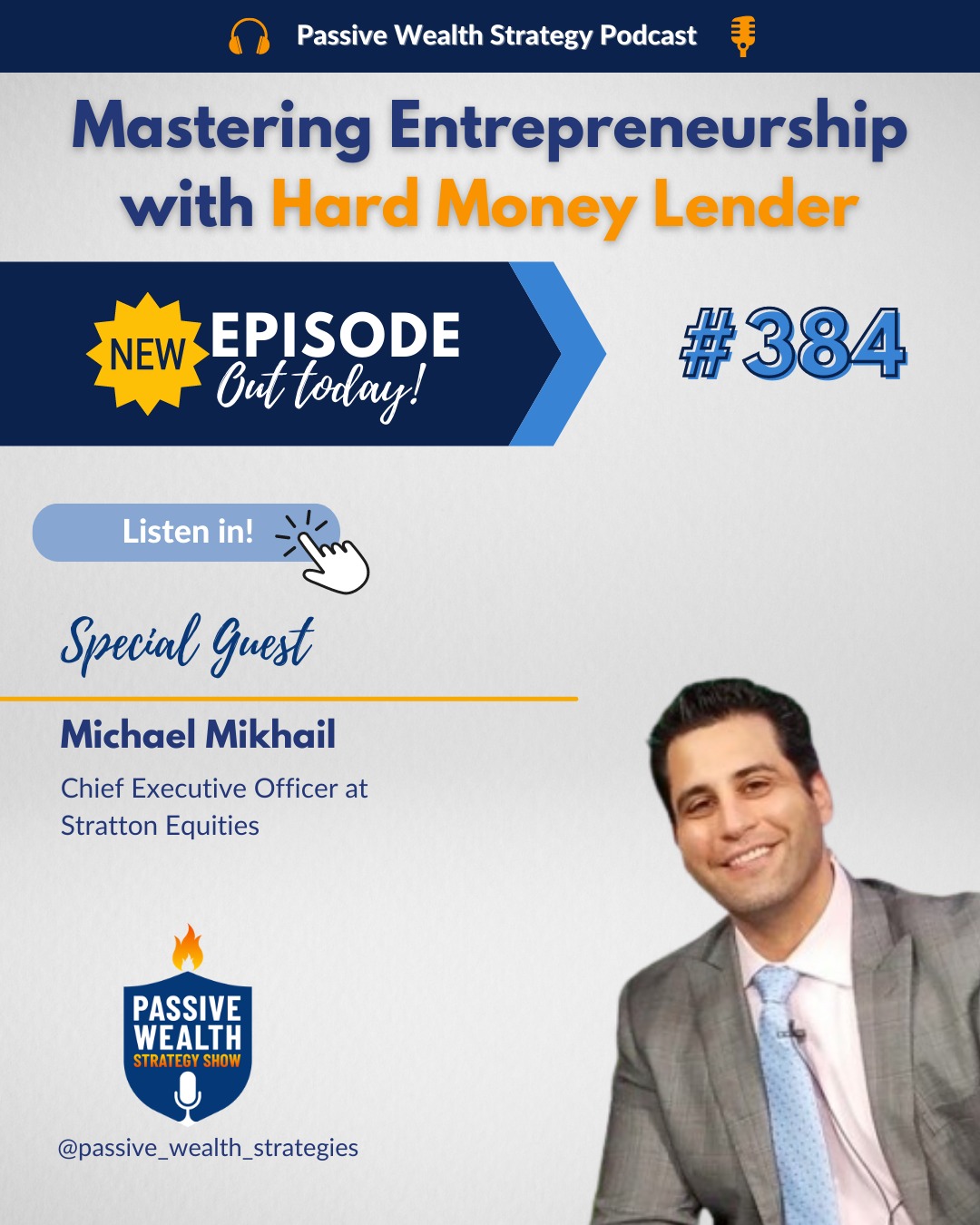
Mastering Entrepreneurship with Hard Money Lender Michael Mikhail
And we sold some. But I just, if it wasn’t for that company, I definitely wouldn’t be where I am now. So even though I lost money, I gained thousand times over with the people that I met, because again, I loved them. I don’t believe in people borrowing or using. Starting a business is an expensive endeavor.
You really don’t. If you look at some of the most successful companies in the world, many of them were started in people’s garages on a shoestring budget. I don’t believe in taking out SBA loans and borrowing tens of millions of dollars. That’s just not how you do it. That’s not how you start a business.
You don’t have to do that. I don’t know where this conception comes from. The most successful companies on earth started with nothing. And when you start with nothing, you’re a lot smarter. You concentrate on how to stretch this, how to make it work, how to be more creative, and how to meet the right people.
You just work harder when you don’t have a choice. If you have $10 million behind you, let me throw money here and they throw money there. And before it, you’re out of money.
So, at what point in that journey with the supplement company do you decide to cut and run, or just move on to the next thing, find another venture, and decide that, hey, this one didn’t work out.
I have to move on. As opposed to, again, going back to the aggression, or maybe calling it persistence, of trying to stick it out. How do you really know that? Hey, this isn’t working. I need to find something else, as opposed to, I’m going to stick it out until it.
I really don’t even remember, to be honest, how long I was doing that.
It wasn’t you. months and months. Because I got into mortgages in the early 2000s, my background was more in mortgages. So I have to make money, which I love. immediately. You’ve got to do it. So I had to make money. I was living at my grandmother’s house. I had when I came back to the U.S. I had no credit card, I had no bank account.
I had no money in the bank. I had virtually no credit because I hadn’t been here in years. I have nothing like I didn’t financially exist in America in 2017. My mom got me a car that I was just driving around in. I had a credit card from my mother that I was literally eating off of for $10 a day. If you are knowledgeable
Which is good because it kept me skinny. But then in my life, I was literally living on a credit card that was soon going to run out. And I wanted a better life for pretty obvious reasons. So I went to work for a mortgage company, and I think the mortgage company I started with was a commercial mortgage company.
I think it’s October or September. And I was there. I worked just like when I do something, I just go all in. I was working 16 hours a day, seven days a week, and I was building a pipeline. I was learning, but I didn’t lose a single loan in that place for two months. And I just met people because when I.
I just did it so much that I met people and it opened up a whole new world to me, of private lending, which I didn’t even know existed six months prior. My background was in regular mortgages, which are QM loans that most people know about. And I went with a guy who wanted to start a company, and I literally went and worked with him.
And then right before he’s ready to launch, he goes bye-bye because he’s going to take it on his own. That’s what a God does. He goes to me. It was December. It was the same. Of 17. I worked in Vermont, setting up the office, doing this and doing that, and hiring people. And then, I don’t know his exact words, but he goes, “I think I was going to do it by myself.” Would I have a contract or anything? “
And another great thing that happened to me is that I’m going to do it. But again, everything that I did, and I want people to understand this, is that you’re going to make money. It doesn’t mean you didn’t learn. It doesn’t mean you didn’t succeed; the vitamin company didn’t make money. I think I made a couple of hundred bucks, even though it cost me thousands.
Which thousands, not the vitamin company, I, it got me to where I wanted to go now, that venture, that would, that guy who took whatever I worked on for three months with him, whatever got me to the next stage. One of my early mentors was that guy, who was one of my early mentors,
So none of it was a loss. None of it.
Nice. Nice. So let’s talk about, let’s get into, scaling and turning it, turning and making the business successful and profitable and growing, and any big lessons that you’ve learned along the way that have helped you focus on the big picture or on the areas where your time is most valuable and outsource tasks or hire people rather than lessons that you’ve learned in the process of scaling and growing the business.
I’ll tell you something. I went to a mortgage convention in 2004, I think in Atlantic City. I met. I was at the bar in Brugada and I met a much older gentleman. At the time, I was 23 or 24. And he goes, “What do you do, kid?” And I’m like, mortgages. So you say, what do you do? Do you like 65-year mortgages?
He goes, “No, you’re not.” And I’m like, “Know what do you mean?” He goes, “If you’re selling cars, we say you spend cars, donuts, or tires on marketing.” And I never forgot that. Actually, I took a lot of bits and pieces of what people told me 20, 25 years ago, which actually meant nothing at the time but greatly impacted me later in life.
So it was always big on marketing. One thing which I’m big on, and I’m a huge believer in, is human capital. Everybody’s going to technology and AI, which we’ll use some of that. We do a lot of technology, but I love human capital. You have to treat the people that work with you.
I don’t work for them, but they don’t work for me. I work for that every single day. They don’t work for me. I work for them. I’m here. I got up at four o’clock in the morning every day for forty-eight. today at 4:45 p.m. or 5 p.m.Are you aware that we began, and you began, at seven-fifteen? I was working for a little over two hours.
I’ll be here at 6, 6, and 7 o’clock at night. I make their lives easy. I do what I have to do to keep them pushing forward. I support them in every single way that is possible. It really taught me how to be a better CEO and a better owner. How to be more. I’ve always been respectful of people but just more appreciative of them.
If you hear about some owner’s issues, people like garbage, which means this is not going to work. You’re not going to build a company. People have to be a part of your vision to scale. And you couldn’t do it when I started. I had nothing. I had no money, no nothing. I just had a website and was trying to get the ball rolling.
But that’s why I work 18 hours a day. Now I’ve completely scaled and I have multiple layers under me. It frees me up to continue to do bigger and better stuff. But my full-time assistant, who is a lifesaver for me, does all of the stuff that, I would say, a lot of the mundane stuff, but it frees up my schedule to do the bigger stuff, which obviously I couldn’t afford three or four years ago.
But I’m very big on human capital and treating people the right way. And then having them do that, they’re all part of the vision. They see the vision. They even come up to me and tell me, “I see where we’re going.” And they tell me how excited they are. We took a major hit when COVID hit in March 2020. We were forced to shut down.
I put the entire office on leave. We shut down from March 2020 to August 2020. We were shut down, and we couldn’t lend our money. Our capital, I think, froze up a bit. Tons of companies went belly up. I’m not going to name names, but a lot of companies totally went belly up.
So we’re lucky that we didn’t. And then we started to come back in August, and we had nobody to hire. We had none. We had nothing. We have literally rebuilt. From the end of 2020 to literally January of this year, the company will completely shut down. So for pretty much a little more than a year, it was just constantly rebuilding and tweaking and restructuring and implementing a lot.
We implemented a lot. We should be ashamed because I would have been much further along if we hadn’t had that year and a half delay. But again, I learned a lot.
They were alone, a lot of unfortunate learning opportunities over the course of the last two years throughout COVID. And I really appreciate that you are. You mentioned the human element of your business and making sure people understand the vision and feel appreciated in the business, and I think that’s one of the biggest things.
It gets people to stick around. The actual experience of working for you is very important.
We have a very low turnover rate, extremely low, once people are really in and they’re committed. It’s got a very low turnover rate. By the end of 2022 or the beginning of 2023, we’re going to double the size of the company, as the economy, especially when mortgage companies are laying off left and right, right now, we are aggressively hiring.
We’re aggressively growing. I’m also looking to drastically increase our product lines. I really didn’t have any current work on that previously. But come April to May, I’m looking Danish right now. Charlotte has the widest range of private money loans under one roof. I’m looking to double that to get into a lot of asset classes that we don’t deal with due to the way we’re structured.
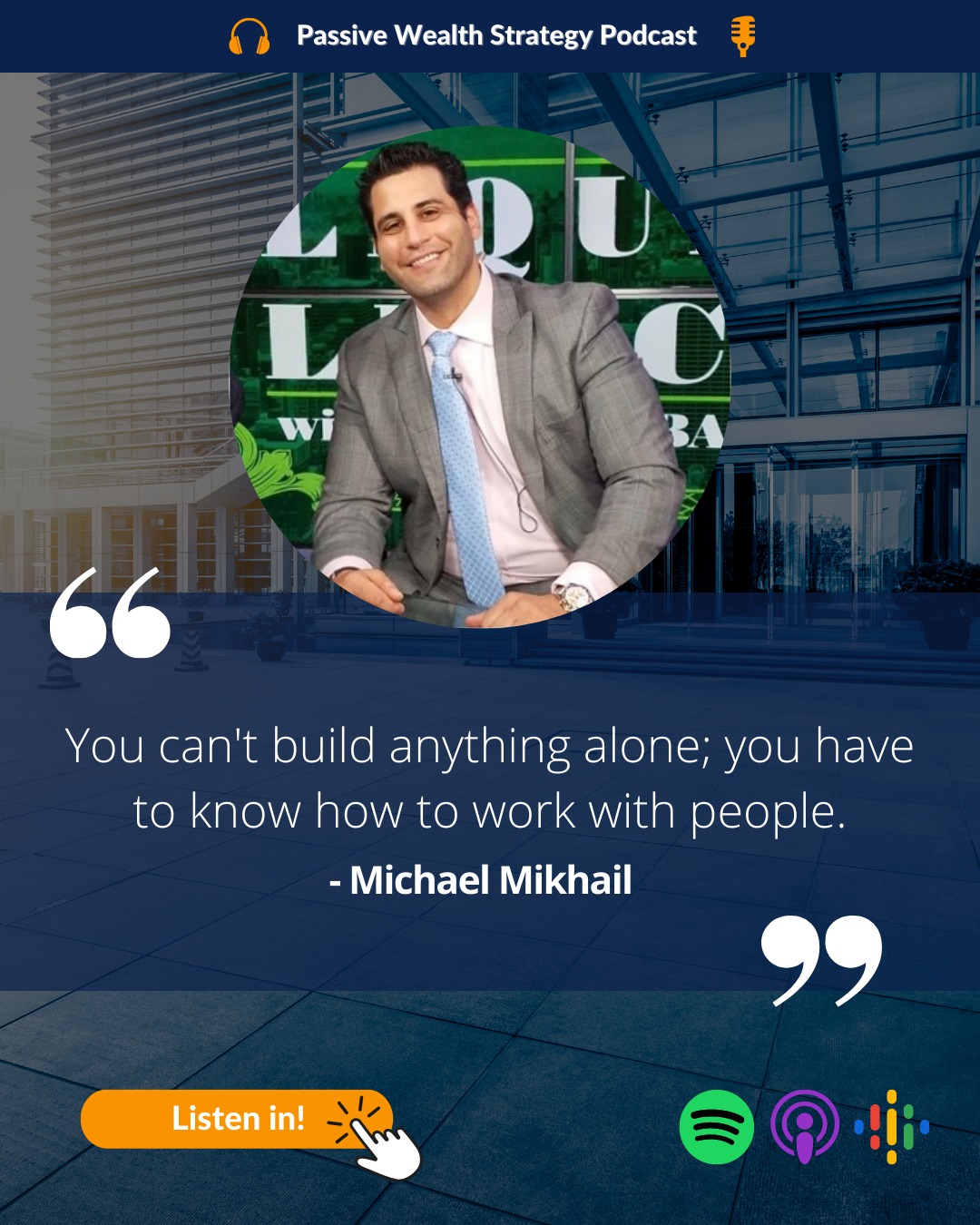
You can't build anything alone; you have to know how to work with people.
Michael Mikhail Tweet
And we’re going to change that, add a couple more states that we’re not currently licensed in and doing business in, and tremendously grow over the next six months to a year.
I love it. I love it. Awesome. Right now, we’re going to take a quick break for our sponsor. All right, Michael, I’ve got three questions.
I asked every guest on the show. Are you ready? great. first one What is the best investment you have ever made other than in your education?
If you’re going to talk about sheer numbers, it would be stranded. Yeah, I started with a thousand dollars and we’re a multi-million dollar company now. We’re going to continue to grow.
So if you’re talking about sheer numbers and what I put in versus what I got out of it, numbers-wise, it would be straight on equities. The first investment property I bought was two years ago. I think I was 19 years old. I was in Florida and I bought it. Hard money. Hard money was not institutionalized back then.
You couldn’t go to a lender and really get private money. 21 years ago, they didn’t exist. Private money started with just older people that had a lot of money. They were tired of just lending money out to people. I was lucky enough to find somebody in Florida. They wanted to do that. That investment was big enough to shape my future as well.
Nice. Nice. We had the best investment. Now we go to the other side of that coin, the worst investment. What is the worst investment you ever made?
Yeah, it’s hard to say because I believe that, at least in my life, I made mistakes. Maybe not everybody’s, but it should have been that you learn from everything.
So even though you didn’t profit from it, like the vitamin company, we are a great example. I didn’t really profit from it. The company did lose money. But with my company now down and equities and who I am would not exist if it wasn’t for them. All those stepping stones, the carwash, the knife, the shopping business,
So with this business and that business, I was always trying to start new businesses and failing at the majority of them. One way or another, whether it was my human interaction, whether it was financially, whether it was the market, there was always something, but I’ve taken so many more of these steps that I don’t really think I really had a bad investment because, again, it was all a leapfrog to where we are today.
Turning some of those situations into ultimately positive ones because you’re learning from the experience. and again, using that as a stepping stone to move on to the next one.
Exactly. So I don’t consider it a loss.
Totally. My favorite question here at the end of the show is, “What is the most important lesson you’ve learned in business and investing?”
That’s how you treat people. I really can’t build anything alone. You look at anybody who has built something. If you can’t build it alone, you have to know how to work with people. You have to be really happy with that. Seek your vision. I’ll tell you, I’ve never signed any long-term contracts.
I wish people would listen to this more. It’s a shame for me. If somebody can deliver on their service, you’re not going to cancel people or companies that want to sign long-term contracts because they know that they can’t deliver. And, once you realize that you’re going to cancel, they want to lock you into long-term contracts.
That is big. It’s also something that I recommend doing, no matter how much money you have. I never paid in full. I break everything up as much as possible because when you pay something in full, that’s it, you lose your leverage. You do. They have all your money now. When you break something up into 12 consecutive payments now, you have them on the line, right?
Because if they don’t deliver, let’s say I start paying you now. Having an American Express is essential for any entrepreneur, I tell them. I’ve got to stop playing the other cards. Platinum Amex is easy to get. For disputes, especially, right? You go to any other card, like tech companies, which are notorious.
They tell you one thing; you do something totally different. They give you a totally different experience; they promise you the world. We can do this today, and then it comes down to it. It never gets done. You put a big thing on your Amex. If it’s a legitimate dispute, you will get your money back. Try to convince yourself that the cards will never come up.
So it’s a huge lever to do things on an Amex, especially if you can spend up money and get a black card because they’re always on your side.
Okay. Okay, I was recently traveling and one of the people that were with me had the American Express card that gets you into the century and clubs in the airports.
And I was jealous of that because it seemed like a good investment. I’d like to have access to that as well.
Yeah, so the two of them that do that are platinum, which is not hard to get. And then the black card. However, many Centurion lounges around the world have closed recently, or at least a couple of months ago, and I was attempting to close them using COVID.
But yeah, definitely a huge plus.
Nice Michael, thank you so much for joining us today and sharing all these lessons with us. If folks want to reach out, if they want to get in touch with you, if they want to learn more about you, your story, or your business, and want to talk about non-qualified mortgages or anything like that, where can they track you down?
Strattonequities.com. Nice and simple. Thank you once again for joining us today. Everybody is out there. Thank you for tuning in. If you’re enjoying the show, please leave us a rating and review on Apple Podcasts. Five stars. If you don’t mind you guys, I appreciate that. So much that helps other people learn about the show because that helps us rank higher in the Apple podcast ecosystem.
And I’m always honest with you guys; that gives me a nice little warm and fuzzy feeling because I get that. You’re engaging with the content, and you’re escaping the Wall Street casino along with us. They’ll forget to subscribe and catch us here every Monday, Tuesday, and Thursday. I hope you have a wonderful rest of your day, and we’ll talk again soon.
Bye-bye.
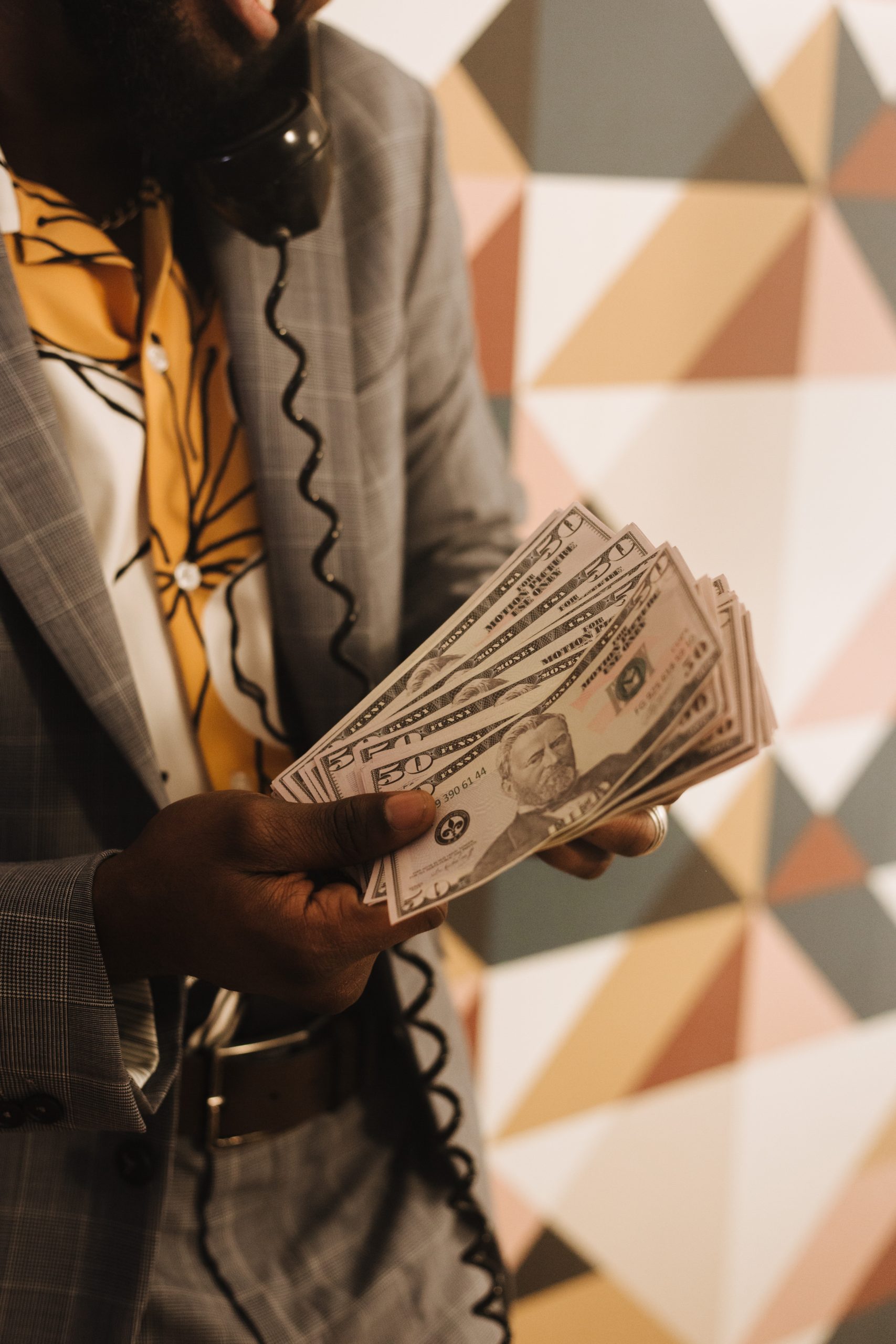
Mastering Entrepreneurship with Hard Money Lender
About our Guest
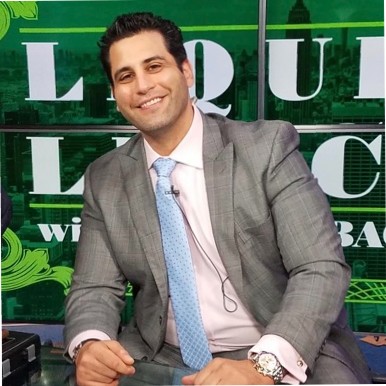
Michael Mikhail
Michael Mikhail is the Founder and CEO of Stratton Equities, the nation’s leading hard money and NON-QM lender to national real estate investors, with the largest variety of mortgage loans and programs under one roof.
Having launched Stratton Equities in early 2017, Michael has always been an entrepreneur and innovator in the real estate market, purchasing his first home at 19 utilizing hard money.
A serial entrepreneur with a foresight for business opportunities, Michael had a slew of small businesses prior to launching Stratton Equities. One of his most prolific ventures was a car wash connected to a gym he was affiliated with in Florida between 2001-2002.
Michael officially joined the mortgage industry in 2003 and decided to travel to explore his options globally.
After traveling to 19 countries in 5 years, Michael knew two things; he wanted to start his own business and launch it in the United States. He knew that moving back to the states was the best place he could start something small and grow it into something infinite.
In 2017, Michael noticed how the mortgage industry had transformed after the regulations presented from 2008-2012, and knew it was time to set out something on his own, thus creating Stratton Equities.
Under Michael’s leadership, Stratton Equities has grown into one of the biggest leaders in the Mortgage and Real Estate industry across genres and platforms.
Episode Show Notes
Michael Mikhail is the Founder and CEO of Stratton Equities, the nation’s leading hard money and NON-QM lender to national real estate investors, with the largest variety of mortgage loans and programs under one roof. Having launched Stratton Equities in early 2017, Michael has always been an entrepreneur and innovator in the real estate market, purchasing his first home at 19 utilizing hard money.
He is a serial entrepreneur with a foresight for business opportunities. He officially joined the mortgage industry in 2003 and decided to travel to explore his options globally. After traveling to 19 countries in 5 years, Michael knew two things; he wanted to start his own business and launch it in the United States. In 2017, Michael noticed how the mortgage industry had transformed after the regulations presented from 2008-2012, and knew it was time to set out something on his own, thus creating Stratton Equities. Under Michael’s leadership, Stratton Equities has grown into one of the biggest leaders in the Mortgage and Real Estate industry across genres and platforms.
[00:01 – 06:20] Opening Segment
- Michael is a private money lender, has ADHD, and has always been creative and passionate about what he does
- Get to know how Michael began his business career at the age of 15
[06:21 – 16:47] Master Entrepreneurship
- Be Aggressive in Your Business
- What it means to be “selfish for yourself to find success”
- Michael’s growing pains in 2008 and 2009
- The need to have a product that people are interested in and the need to spend money on marketing to get the product into the hands of consumers
[16:48 – 24:50] Learning from Mistakes
- Michael started a vitamin company, failed but learned from it
- If a business does not make money at first, it is still possible to learn and succeed in the long run
- Treat people well, have a clear vision, and respect the people around you
[24:51 – 34:00] Closing Segment
- Quick break for our sponsors
- The first step to growing your wealth is tracking your wealth, income spending and everything else about your finances, you can start tracking your wealth for free and get six free months of wealth advisor. Learn more about Personal Capital at www.escapingwallstreet.com
- What is the best investment you’ve ever made other than your education?
- Equities
- Michael’s worst investment
- No bad investment, but stepping stones to move on to the next one
- What does success mean to you?
- “You can’t build anything alone.”
Connect with Michael Mikhail through https://www.strattonequities.com/.
Invest passively in multiple commercial real estate assets such as apartments, self storage, medical facilities, hotels and more through https://www.passivewealthstrategy.com/crowdstreet/
Participate directly in real estate investment loans on a fractional basis. Go to www.passivewealthstrategy.com/groundfloor/ and get ready to invest on your own terms.
Join our Passive Investor Club for access to passive commercial real estate investment opportunities.
LEAVE A REVIEW + help someone who wants to explode their business growth by sharing this episode or click here to listen to our previous episodes
Tweetable Quotes:
“People have to be a part of your vision to scale.” – Michael Mikhail
“It’s not about the money. You can’t say, like Elon Musk and say, I want to make all this money. It was what he was passionate about, what he did and what he had a knack for.” – Michael Mikhail

